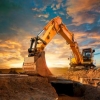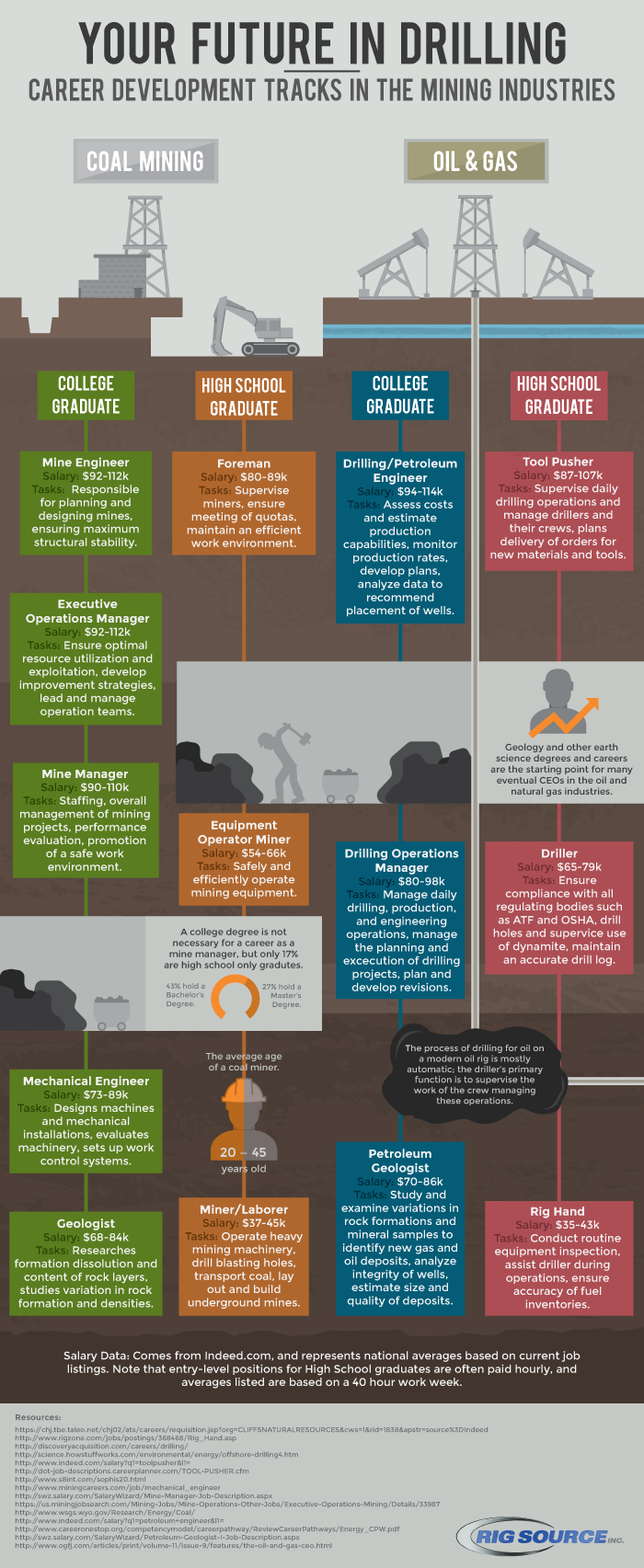RL Blogs

By Digital Third Coast
Nov 21, 2017Comparison of career choices in Oil Drilling and Coal Mining. |
| You know that you want a career in the drilling industry - but do you have a clear idea of how you’re going to achieve your goals and progress in your career?
Depending on your educational background and your career objectives, you might follow a different path than others in the drilling industries. Here’s an overview of a few different routes your career might take.
In coal mining, a high school graduate is likely to begin as a miner/laborer, earning $37-45K per year for operating heavy mining machinery, drill blasting holes, and more; these laborers tend to be anywhere from 20-45 years old. A promotion to mine manager is possible; however, only 17% of mine managers are high school only graduates, and a college degree is preferred.
Instead, it’s more likely that a high school graduate will progress to equipment operator miner, who is responsible for safely and efficiently operating mining equipment. From there, one might become a foreman, earning up to $89,000 per year for supervising miners, ensuring the meeting of quotas, and maintaining an efficient work environment.
A college graduate in the coal mining industry, meanwhile, may start as a geologist or a mechanical engineer, depending on his or her educational background. From there, the career arc would progress from mine manager to executive operations manager (ensuring optimal resource utilization and exploitation, developing improvement strategies, and leading and managing operation teams) or mine engineer (planning and designing mines and ensuring maximum structural stability).
Over on the oil and gas drilling side, high school graduates will start their career as rig hands, conducting routine equipment inspections and assisting the driller, progressing to the role of driller and eventually, tool pusher.
A college graduate will begin as a petroleum geologist, studying various rock formations to identify new gas and oil deposits. Then, he or she will advance to drilling operations manager and eventually drilling/petroleum engineer, assess costs and estimating production capabilities and using data to recommend the placement of new wells. |
|
|









